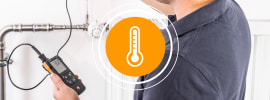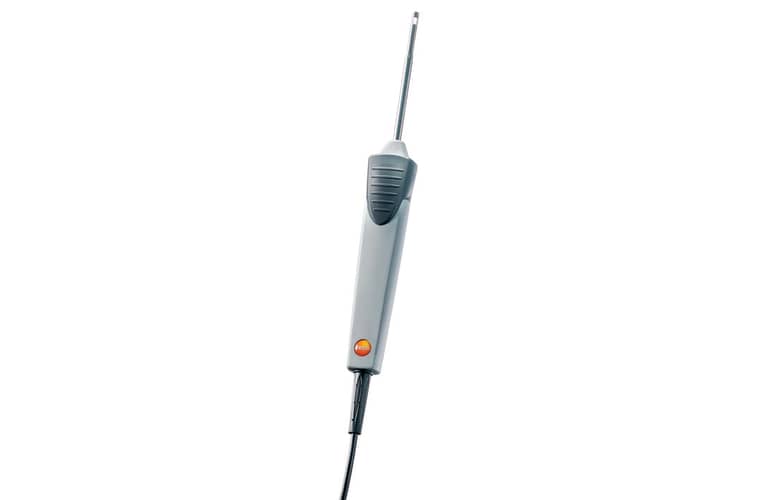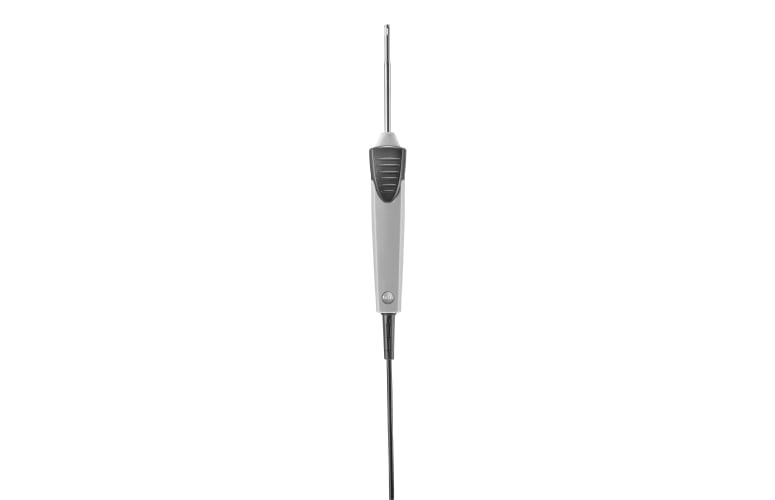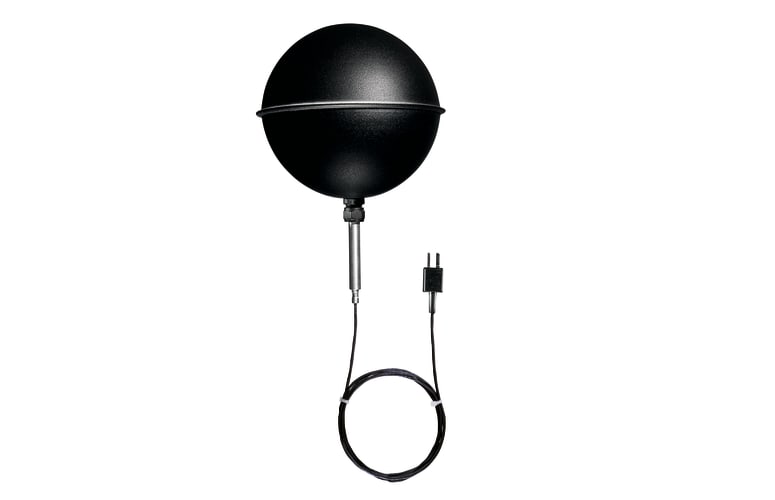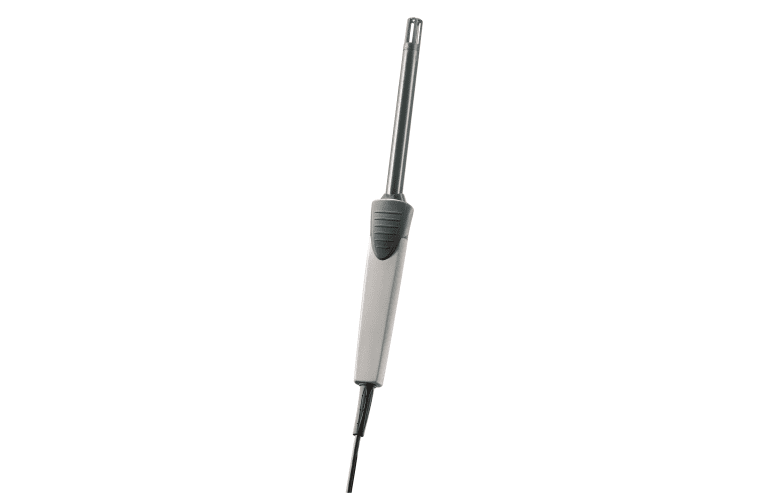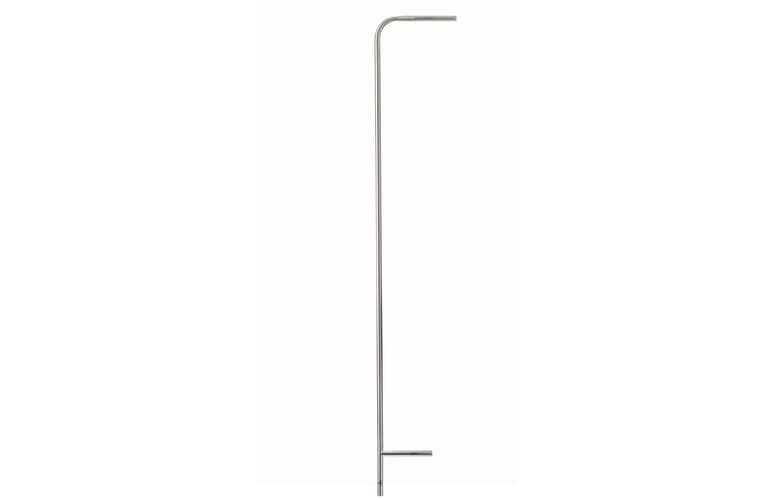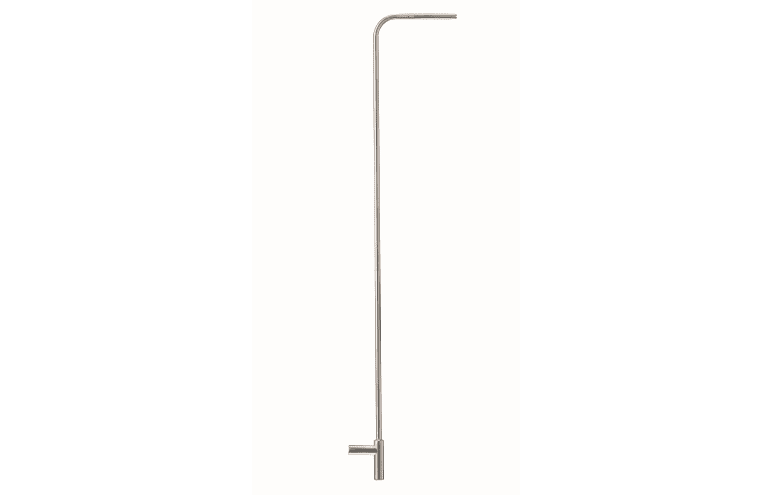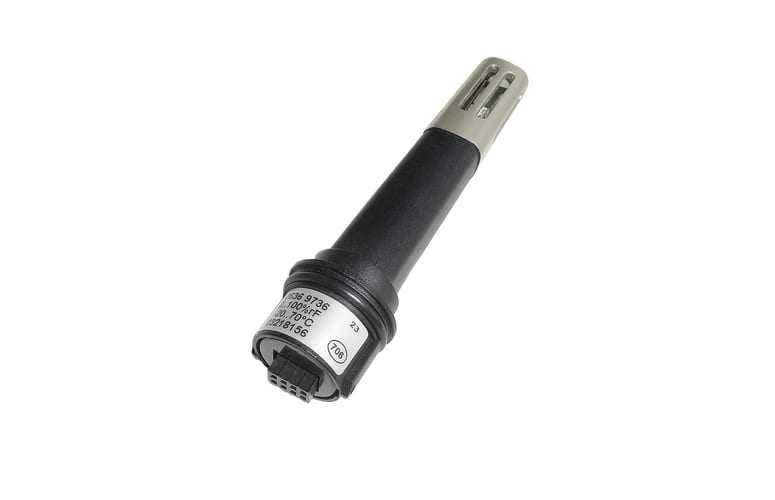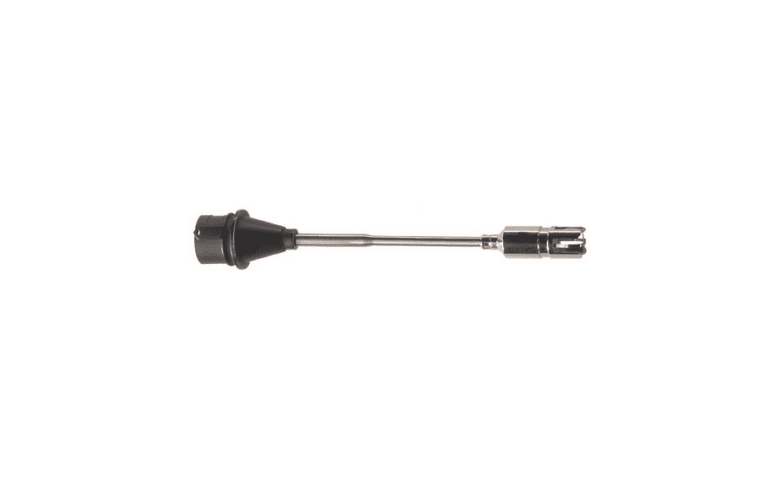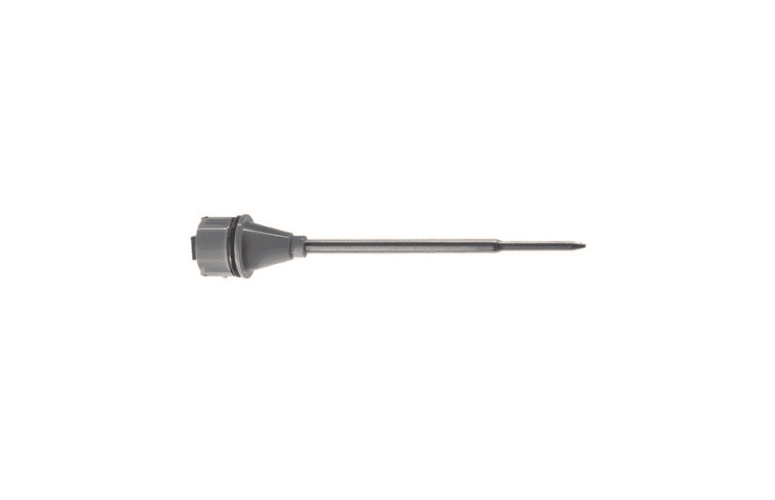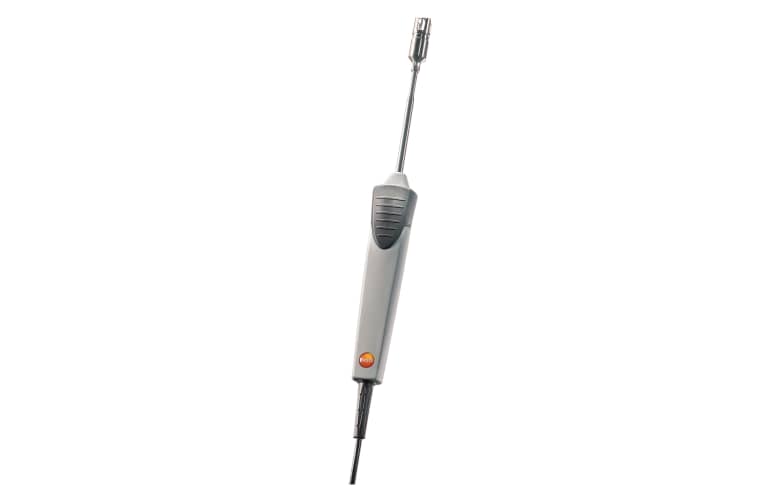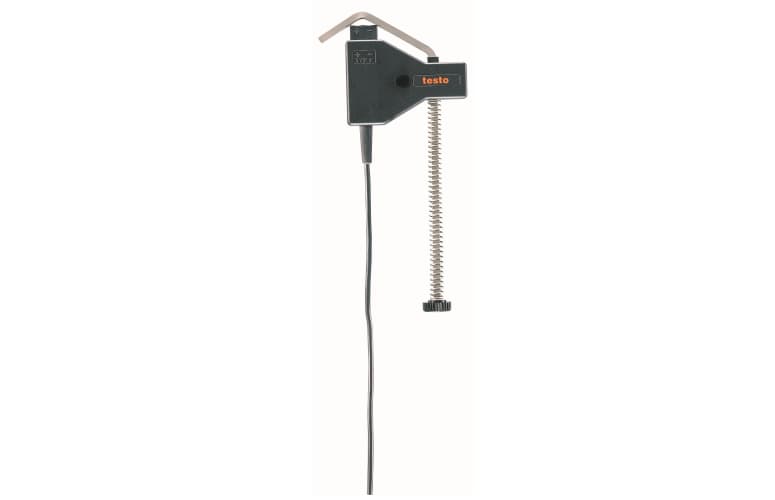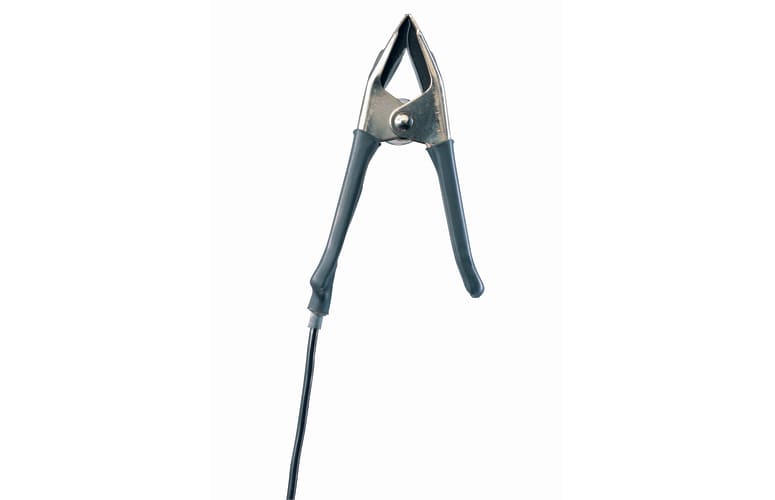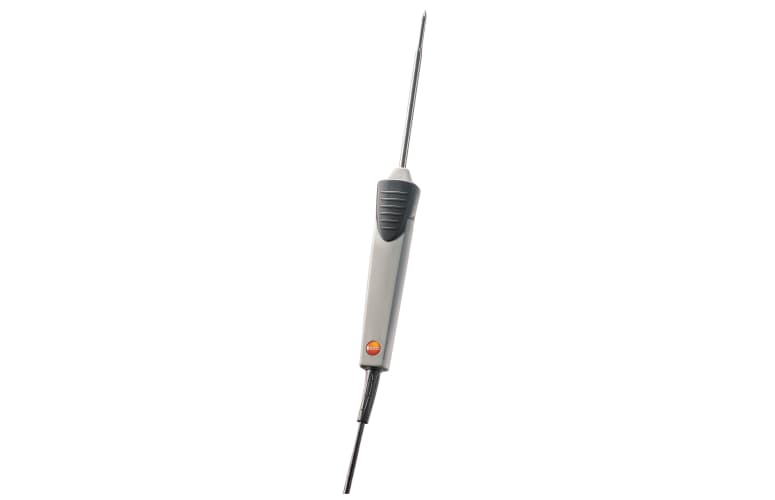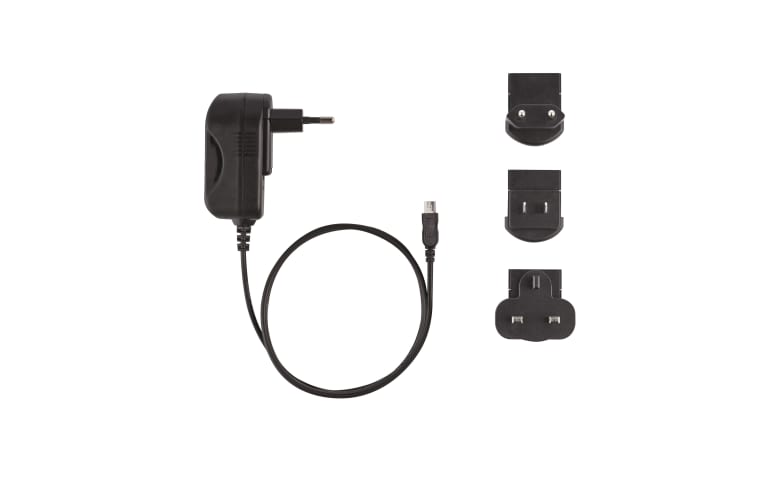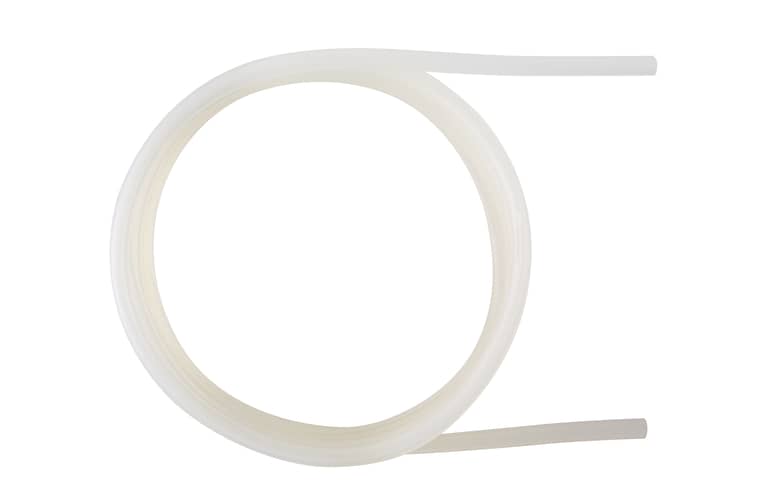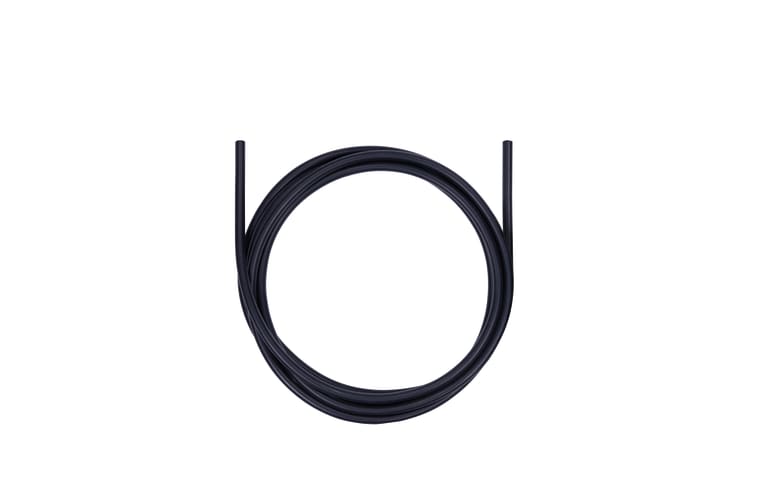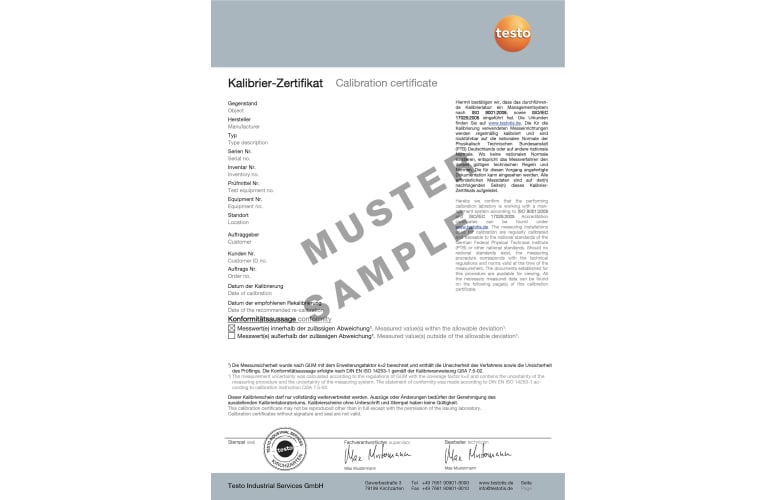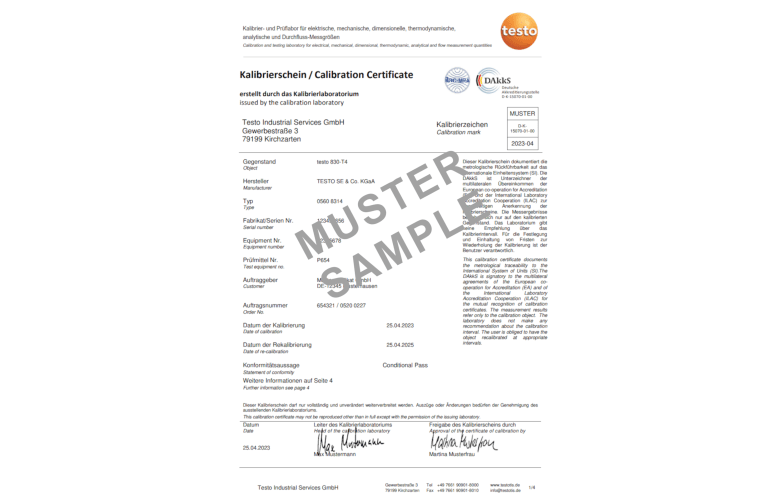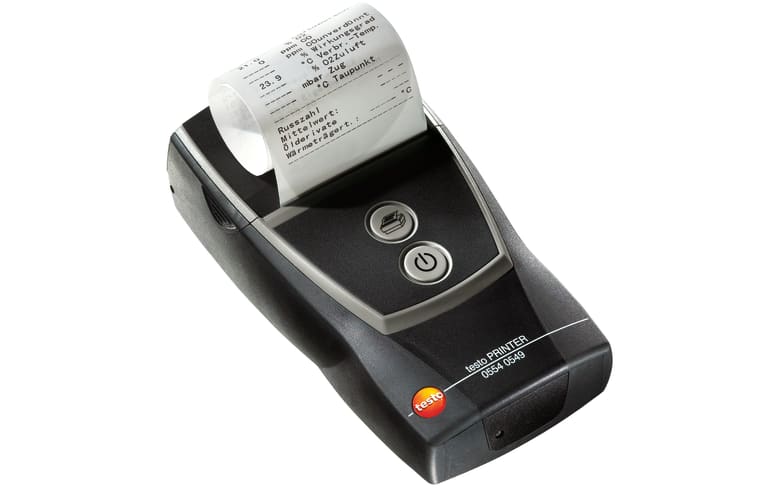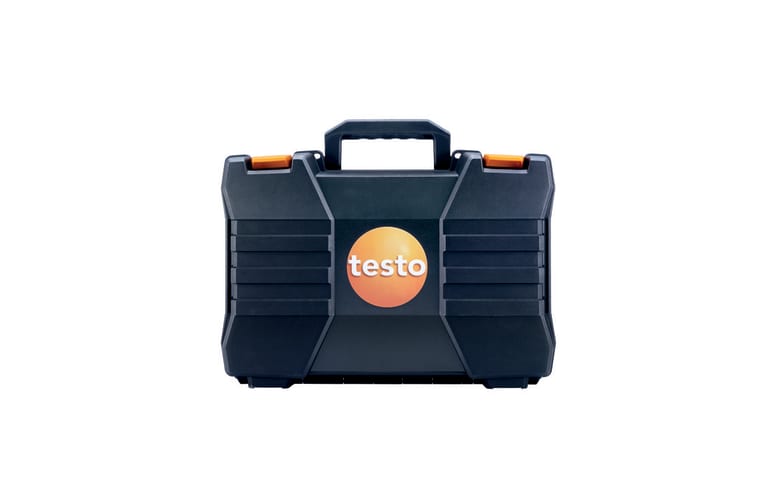Find out which benefits the multifunction meter testo 435-4 provides
The testo 432-4 is extremely versatile and can measure a host of variables including air temperature, air flow, volumetric flow rate, humidity and lux. And because you know best what your multifunction meter needs to be able to do, you can configure it accordingly by connecting any one of the many optionally available sensors and probes.In addition to the sensors which can be connected directly to the meter, you can also connect up to 3 wireless sensors via an optionally available wireless module. The meter can pick up the measurements via the wireless sensors over a distance of up to 20 meters. This allows you to carry out quick and easy measurements at places which would otherwise be extremely difficult or virtually impossible to reach.
There’s also a special optionally available carry case that can hold not only your meter but also all the probes and sensors that make up your individual set.
Multiple features, yet easy to use
The testo 435-4 multifunction meter is designed to work quickly and efficiently without having to be laboriously programmed first.Sensor dependent menus and selectable user profiles for typical applications like “duct measurements” and “IAQ measurements” ensure that the meter is always ready to use. The testo 435-4 has a super-size memory that can save up to 10 000 measurements, which can be transferred to your laptop or PC via the included USB cable. The included software allows you to log, archive and clearly structure all relevant measuring data and measuring programmes, for example duct measurements. Specially adapted measurement protocols can be used to present your customers with data from duct, long-term and degree of turbulence measurements. The optionally available testo fast printer can be used to provide your customers with on-the-spot protocol print outs.
The testo 453-4 has a large, easy-to-read backlit display that shows the dew point difference along with other values including min, max and mean values. A durable protective cover protects the testo 435-4 multifunction indoor air quality meter reliably against impact.





